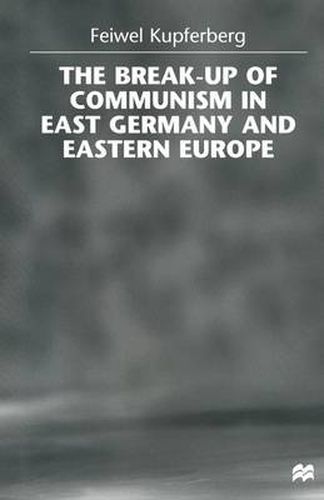Readings Newsletter
Become a Readings Member to make your shopping experience even easier.
Sign in or sign up for free!
You’re not far away from qualifying for FREE standard shipping within Australia
You’ve qualified for FREE standard shipping within Australia
The cart is loading…






This title is printed to order. This book may have been self-published. If so, we cannot guarantee the quality of the content. In the main most books will have gone through the editing process however some may not. We therefore suggest that you be aware of this before ordering this book. If in doubt check either the author or publisher’s details as we are unable to accept any returns unless they are faulty. Please contact us if you have any questions.
This book presents a novel understanding of the break-up of communist hegemony in East Germany and Eastern Europe. Based on comparative case studies, it argues that identity politics is a particular invention of communist rule, producing a political citizen. Focusing upon identity politics helps us better to understand the longterm stability of communist hegemony, its sudden collapse, the difficulties of transforming communist societies to liberal democracies and the unexpected revival of ethnic, nationalist and cultural conflicts in post-communist Eastern Europe.
$9.00 standard shipping within Australia
FREE standard shipping within Australia for orders over $100.00
Express & International shipping calculated at checkout
This title is printed to order. This book may have been self-published. If so, we cannot guarantee the quality of the content. In the main most books will have gone through the editing process however some may not. We therefore suggest that you be aware of this before ordering this book. If in doubt check either the author or publisher’s details as we are unable to accept any returns unless they are faulty. Please contact us if you have any questions.
This book presents a novel understanding of the break-up of communist hegemony in East Germany and Eastern Europe. Based on comparative case studies, it argues that identity politics is a particular invention of communist rule, producing a political citizen. Focusing upon identity politics helps us better to understand the longterm stability of communist hegemony, its sudden collapse, the difficulties of transforming communist societies to liberal democracies and the unexpected revival of ethnic, nationalist and cultural conflicts in post-communist Eastern Europe.